Pictures www.tovima.gr
Pantelis Voulgaris' Little England took us on the Andros of the 1920s in the same year when the LIFE programme brought us back to this particular island. The scientists involved in the programme are not simply studying the ecosystem of the northernmost Cycladic island but are also implementing activities for its protection.
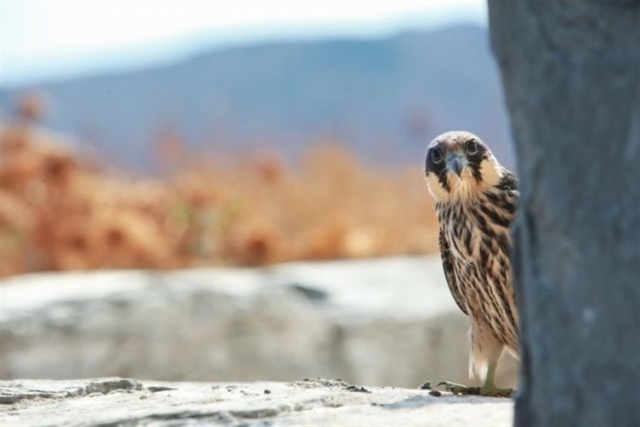
Activities on islands where there are colonies of this type of falcon – a striking species with long wings – have led to the recovery of its population following a period in which it was threatened.
Populations of rats – foreign species which have arrived on the islands of the Aegean Sea as a "stowaway" on fishing vessels – have settled in local ecosystems and literally become top predators feeding on the eggs and young of seabirds and falcons. Each year, they cause losses to 40% of their reproduction. "The birds have adapted to live with rats, and therefore they are literally disappearing," explained ornithologist and scientific leader of the project Tassos Dimaleksis.
Documentaries
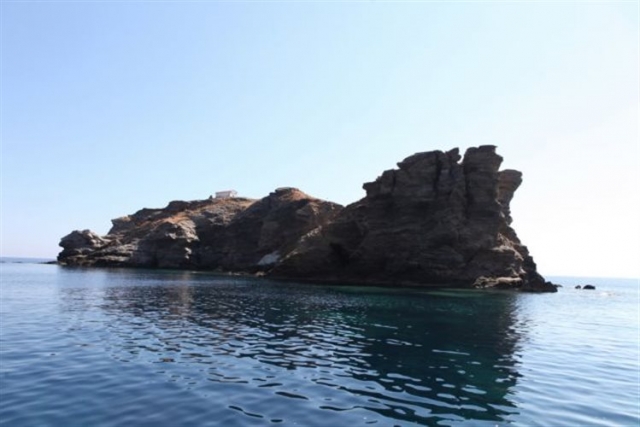
The case of the island, which is home to a large colony of Eleonora's Falcons (Falco eleonorae) is typical. It has become internationally known after the creation of two documentaries which are still being shown on the state televisions of Sweden and Japan.
The island in question was the home of approximately 70 pairs of falcons until 2007. These falcons used to feed about 95 young each year. Since 2008, when the invasion of rats on the island was registered, the number of pairs has dropped to 34 and nests have reached 32 annually. In 2011, in the first year of its implementation, the LIFE programme started an activity for the systematic control of the number of rats and, as a result, the number of pairs of falcons and their chicks reached the 2007 levels in 2012.
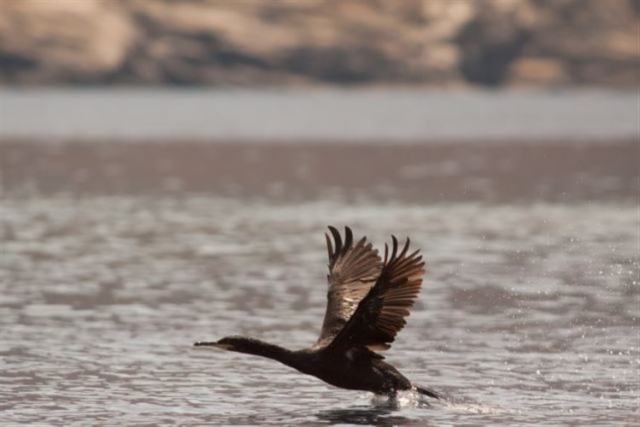
20 artificial nests for Eleonora's Falcon were created in 2013 on the island with local materials. In this way, the number of pairs increased to 74 in 2013, and the same year their offspring numbered 115.
According to Dimaleksis, findings are very optimistic. In parallel, scientists have gained experience, which may be extended in the future to other islands of the Aegean, in this way helping the restoration of protected species. Dealing with "invaders" and the protection of endangered birds are the main priorities of the European strategy for biodiversity. Thanks to the experience gained via the Life programme, these priorities can gradually be applied successfully in Greece, the ornithologist added.
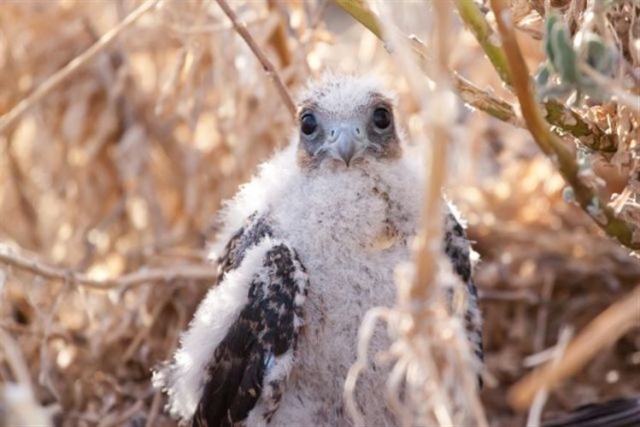
Challenges by 2015
The LIFE programme on Andros has to go a long way and many challenges to face until it is completed in 2015. Its main challenge is to successfully convince the local community that the protection of nature is absolutely compatible with the preservation of the quality of life and the unique cultural heritage of the island.
The programme is implemented by the municipality Andros, the Hellenic Ornithological organization and the environmental consulting company Nature Conservation Consultants (NCC), with funding from the European Commission and the Green Fund. It includes exploration activities and the protection of birds, the revival of traditional cultures, preservation of landscape and ecosystems, environmental education, improvement of the ecosystem, attracting visitors and promoting ecotourism.
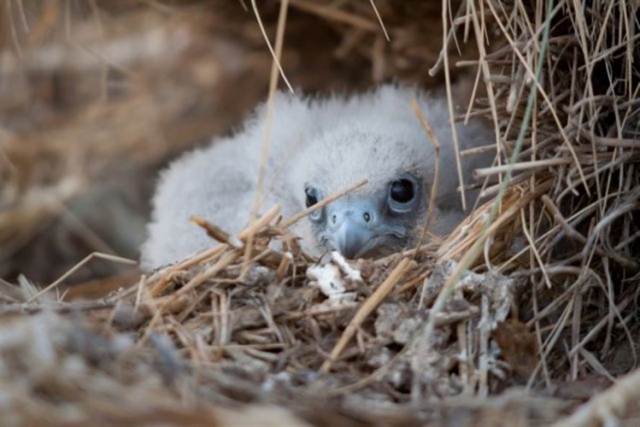
At the same time a management plan for the area under special protection on Andros is being prepared, in order to ensure the institutional protection of ecosystems and species on the island. The plan must be accompanied by a series of specific studies, the most important of which include the protection and enhancement of wetlands on the island, the protection of underwater meadows in Posidoniya, a plan for the surveillance and security of the region and a study of the viability of management based on economic criteria, so that the survival of the plan after the end of the programme could be guaranteed.
Mapping threats
Research and mapping of the sensitivity of endangered birds are also being carried out with regard to the pillars of high-energy transmission networks, antennas of mobile operators and wind turbines. The dangerous infrastructure is being mapped and adjustments where considered necessary have been proposed.
Moreover, within the local biodiversity and in collaboration with scientists from the Agricultural University of Athens, the systematic recording of traditional agricultural varieties on the island is being carried out in order to codify and possibly revive some of these varieties for local production.